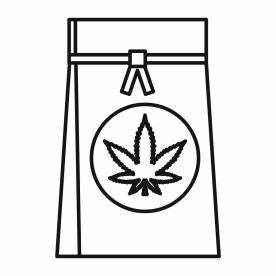Today, Attorney General Jefferson B. Sessions announced, in a memorandum to all US Attorneys, the immediate revocation of five Obama Administration policies on federal marijuana enforcement, including Guidance Regarding the Ogden Memo in Jurisdictions Seeking to Authorize Marijuana for Medical Use, Guidance Regarding Marijuana Enforcement and Guidance Regarding Marijuana Related Financial Crimes. These three Obama-era guidance documents were drafted by then Deputy Attorney General James M. Cole in response to state legalization initiatives.
Two of the rescinded Obama-era memoranda had instructed federal prosecutors to focus their enforcement efforts related to marijuana businesses operating in compliance with state laws and enforcement of marijuana-related financial crimes on eight priorities, such as preventing the diversion of marijuana from states where it is legal to other states and preventing the distribution of marijuana to minors. Sessions’ memorandum enables federal prosecutors to pursue marijuana enforcement based on “all relevant considerations,” including:
-
federal law enforcement priorities set by the attorney general,
-
the seriousness of the crime,
-
the deterrent effect of criminal prosecution, and
-
the cumulative impact of particular crimes on the community.
As we previously noted, the Trump Administration was expected to take a tougher stance on the enforcement of federal drug laws against persons operating in states that legalized marijuana. The Trump Administration issued several signals that policy changes were imminent. For example, in a 2017 signing statement, President Trump rejected the imposition of congressional restrictions on the Department of Justice’s use of appropriated funds for marijuana enforcement. Specifically, the Consolidated Appropriations Act that funded the federal government for a portion of 2017 contained a provision aimed at prohibiting the Department of Justice from taking action against states implementing their own laws authorizing the use, distribution, cultivation or possession of medical marijuana. Later continuing appropriations acts did not remove this provision.
This is not the first time that the Department of Justice revoked Obama-era policies related to drug laws. In a 2017 memorandum to federal prosecutors directing them to pursue the most serious, readily-provable offenses and to recommend sentencing within advisory guideline ranges, Attorney General Sessions rescinded policies on mandatory minimum sentences and recidivist enhancements in certain drug cases and guidance on plea negotiations. Other Department of Justice entities have taken a more hostile enforcement approach as well. The Department of Justice’s Executive Office for US Trustees issued a 2017 memorandum about marijuana assets, which may not be administered under the Bankruptcy Code, even if the assets are not illegal under state law.
Attorney General Sessions’ announcement likely heralds more aggressive enforcement measures. Though the Obama Administration’s guidance did not prevent criminal prosecutions or other adverse actions under federal drug laws, the revocation of such guidance presents those in the marijuana business with increased risks of potential criminal penalties and civil fines. Under both the past and current policies, marijuana and most parts of the Cannabis sativa L. plant remain illegal Schedule I drugs under the Controlled Substances Act. Although 8 states have legalized recreational use of marijuana, and 29 states, the District of Columbia, Guam and Puerto Rico permit medical use of marijuana, the Drug Enforcement Agency has repeatedly denied petitions to reschedule marijuana from Schedule I to any other schedule, in part because marijuana has no accepted medical use.
It is unclear if this policy change came as a result of the efforts of the Task Force on Crime Reduction and Public Safety, which President Trump created in a February 2017 executive order. Sessions charged the task force with reviewing existing policies on “charging, sentencing, and marijuana to ensure consistency with the Department’s overall strategy on reducing violent crime and with Administration goals and priorities.” The Associated Press and other media outlets stated in August 2017 that the Task Force reportedly said that officials should “should evaluate whether to maintain, revise or rescind” the Obama Administration memoranda discussed above and that “officials should continue to oppose rules that block the Justice Department from interfering with medical marijuana programs in states where it is allowed.”



 i
i


